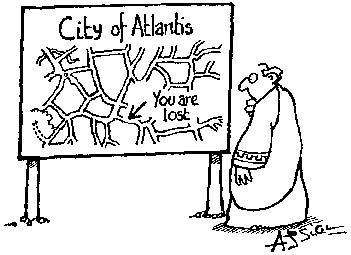David Cameron should have enjoyed his trip this week. Autumn is a great time to be in Beijing. The sky is deep blue, the sun hot and the evenings cool. As the season progresses, the shadows thrown by the tall buildings lengthen and the north wind from Mongolia blows a little more urgently. The pollution in Beijing is much less bad than in other Chinese cities, and the new parks and landscaped gardens and flower beds are beautifully tended. Rem Koolhaas’s massive CCTV headquarters, Paul Andreu’s National Theatre ‘the Egg’, and Ai Weiwei’s Olympic Stadium add to the grandeur of this great northern capital. During the autumn holiday, half of China migrates from one side of the country to the other to visit their families. For about 10 days the whole country is en fête. Food is central to Chinese wellbeing and now is the time for hairy crabs from Shanghai, roasted chestnuts and tanghulu (caramelised crab apples on sticks) sold on street corners. The melons and grapes are fresh from Xinjiang.
A few months ago our ‘national treasure’ Stephen Fry announced to a large audience out here that ‘the British don’t make things any more, that is why we are bust’. I’d urge him to try the delicious mooncakes made by a joint British–Hong Kong Chinese venture, 20 million of which were eaten in China during the Moon Festival. Or he could take a look at the stunning British Pavilion at Shanghai Expo, designed by the young architect Thomas Heatherwick, or the superb Hong Kong Pavilion, which was British-built. Incidentally, the British Pavilion turned out to be one of the most popular, attracting 45,000 visitors a day. This is more than all of the six most popular tourist venues in the UK put together. Some eight million people have visited in the last six months. That’s even more people than follow Mr Fry on Twitter.
Unlike Beijing, Shanghai can be awful. If traffic is bad, the queues are worse. People were queuing for up to six hours to get into Expo. The modernisation of Shanghai has been left in the hands of public sector developers, and urban planning and regulation are minimal. There are no new parks and what few trees have been planted are in a lamentable state. While London is 40 per cent parkland, the urban wonder of Shanghai has only a miserable 4 per cent.
There has been a ‘constant battle’ to preserve historic Hangzhou, once the capital of the Song Dynasty and a place of spectacular beauty set on the West Lake two hours north of Shanghai. Like many of the Chinese emperors and potentates, Mao had a villa there, set in 130 acres on the shore of the West Lake itself. In fact, Mao came down from Beijing as he launched the Cultural Revolution. I tried to find the place on a previous visit but was repeatedly told that no such house existed, though I knew it did. Today it is a comfortable guest house and can be visited. Marshal Lin Biao, the general who led the People’s Liberation Army into Beijing in 1949, also had a house further up the hillside. It’s a mansion with underground rooms and passages where the plot to overthrow Mao is said to have been hatched. Lin’s notorious swimming pool, with its two-way mirrors so he could spy on beautiful young maidens, is no longer on view.
Back in Beijing the holiday is over, but still no work is taking place on the huge building site beside my hotel, because a number of tiny hutong house owners are holding out for higher compensation. This has been going on for more than three years, and though it is the government’s responsibility to clear the site — since they have sold it to a developer — public opinion is strong and they are scared to act. Piles of rubble throw up great clouds of dust and in the winter, I am told, ravenous rats swarm the site. Property has become a political football in China as prices rise inexorably and the gap between rich and poor grows ever wider.
In China as in England, house prices are a great worry. Young Chinese women are refusing to marry unless their partners have bought a place, and too many young men just cannot afford it. Recently a TV personality caused a sensation when she announced, ‘I would rather cry in the back of a Mercedes than smile on the back of a bicycle.’ Women in China are very much in the minority — even so, after the age of 27 they find it hard to find a husband.
The day before I leave China, out of the window I watch Lao Wang, a peasant from Anhui province, shaving and washing his hair in a small basin, sitting on a stool beside his precious tool box. Lao Wang mends shoes, bicycles — anything. His wife does the same thing and they live together in a tiny room and send back the small proceeds to their children at university in Henan. Lao is methodical and tidy. The wind from the north is blowing harder now but the sun is still shining and still warm.





Comments